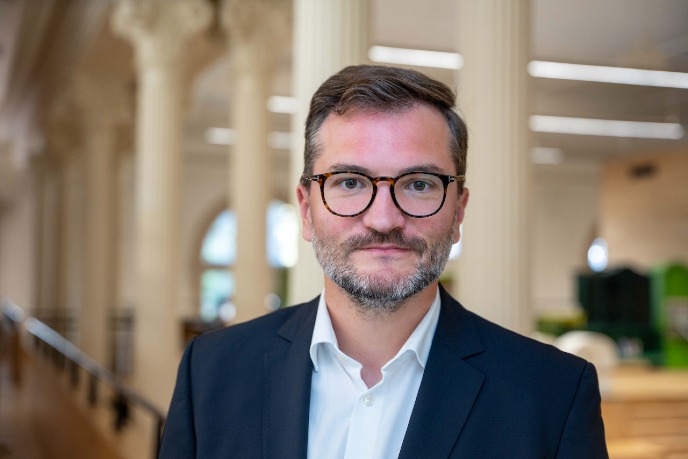Should the government do more to protect my data?
Answer by Dr. Oskar Gstrein, Associate Professor at the Department of Governance and Innovation of the interdisciplinary Faculty Campus Fryslân
In a world increasingly shaped by technology, governments must increase efforts to secure and enforce protection of your data. As digital divides emerge, it is vital to ensure fairness in resource and power distribution. Laws enable the reflection of societal values in technology, foster responsible innovation, and enhance broad prosperity.
Technology and data play an increasingly important role in our lives. The speed with which cutting-edge applications based on artificial intelligence and similar breakthroughs become part of our everyday lives is hard to keep up with. This also has an impact on the make-up of our society – there are those among us who enjoy the benefits and opportunities of new devices and services, but there are also those who prefer to stick to the old ways of doing things.
In the public sector, this division has implications for how we interact with the government - for example, by using digital identity services such as DigiD, or by filing our income tax online. In the private sector, the last three decades have seen the meteoric rise of a handful of companies that dominate the digital society, cloud infrastructures, or the machines needed to make computer chips. All of this has implications for the distribution of power and our autonomy, for who has influence and who does not, for how wealth is generated and distributed, and for the prospects we have as individuals and as a society.
Laws and regulation are one way of responding to these developments. But they can also be seen to shape a better future going forward. In democratic countries - those that respect human rights and the rule of law - they allow to have a legitimate, multi-stakeholder debate that leads to binding rules. These rules define clear obligations to behave responsibly with respect to the technologies, as well as rights for those who are potentially harmed. In this sense, the question is not whether regulations and laws promote or stifle innovation. We should use them to negotiate the principles we want to see embedded in technology, the process by which innovations become part of our everyday lives in a responsible and enabling way, and how the opportunities that technology and data bring can create prosperity for all.
If interpreted in this way, the government should do more to protect (y)our data.

Who is Oskar Gstrein?
Oskar Josef Gstrein is Associate Professor at the Department of Governance and Innovation of the interdisciplinary Faculty Campus Fryslân. He is also Programme Director of the BSc Data Science & Society and Theme Coordinator 'Data Autonomy' at the Jantina Tammes School of Digital Society, Technology and AI.
His overall research theme is ‘Human Dignity in the Digital Age’. In his research he explores the transitions from abstract principles (e.g. human rights/ethical principles) to concrete legal or governance frameworks.
UG Lustrum:
Celebrate 410 years of science with us!
This campaign is part of the University of Groningen Lustrum in 2024. The University of Groningen will then have been in existence for 410 years.


